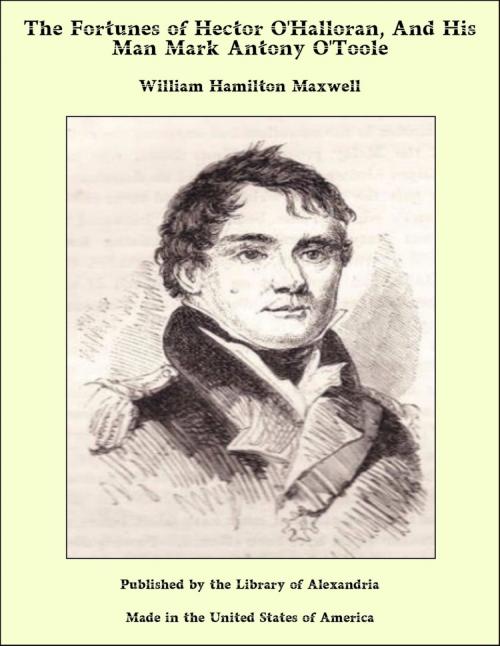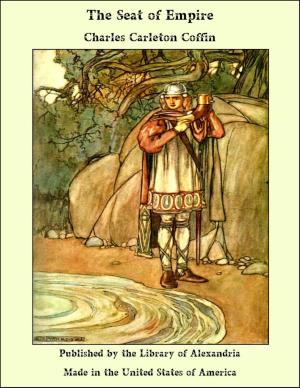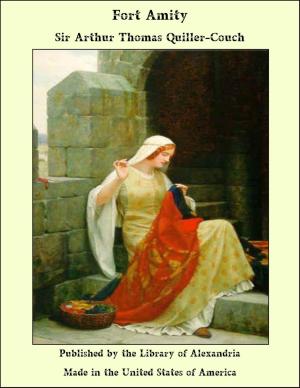The Fortunes of Hector O'Halloran, And His Man Mark Antony O'Toole
Nonfiction, Religion & Spirituality, New Age, History, Fiction & Literature| Author: | William Hamilton Maxwell | ISBN: | 9781465612250 |
| Publisher: | Library of Alexandria | Publication: | March 8, 2015 |
| Imprint: | Language: | English |
| Author: | William Hamilton Maxwell |
| ISBN: | 9781465612250 |
| Publisher: | Library of Alexandria |
| Publication: | March 8, 2015 |
| Imprint: | |
| Language: | English |
During the continuation of these fearful storms, this wild coast had not escaped its customary visitations. An island smack had foundered with all its crew; and farther to the northward, a transport, homeward-bound from Holland with sick and wounded soldiers, having been dismasted in the gale, was driven a wreck upon the coast. By the fearless intrepidity of some fishermen, the sinking vessel was carried through a fissure in the rocks into a sandy bay; and, by what appeared miraculous interposition, the lives of all on board were saved, even when hope was over. On the second evening after this fortunate deliverance our story opens. Indeed, the epoch was memorable. That disastrous campaign which brought disgrace upon the British arms, had just terminated in the evacuation of the Low Countries, and the withdrawal to its own shores of the débris of a splendid force, which, under luckless auspices, had left England buoyant with the assurance of success. Nor was a foreign failure the only circumstance which at this eventful period gave cause for apprehension. In England, the public mind was agitated, monetary confidence deeply shaken, and revolutionary principles were gaining ground; while in Ireland the peasantry united in lawless associations, and murder, with robbery of arms, intimated that some insurrectionary movement was at hand. In a word, everything was gloomy and discouraging abroad, and at home life and property had no security. With few exceptions the resident gentry had repaired for protection to garrisoned towns. Some however, with more spirit than discretion, determined to remain within their houses, and my father was of that number. Yet there were few persons excepting its owner, who, even in peaceful times, would choose Knockloftie for an abiding place. It was an old and dreary-looking fabric,—one portion consisting of a dark square tower, the keep of a former stronghold of the O’Hallorans,—and the others, additions built at different periods, according to the wants or fancies of succeeding proprietors. The house was perched upon a cliff, which rose in sheer ascent two hundred feet above the beach beneath it. Although sheltered by some high grounds behind, still, as the building looked upon the ocean, it was necessarily exposed and cold; while dwarfed and sickly copse-wood—all that repeated efforts to grow timber could produce—instead of improving the general appearance of the place, gave a silent but striking evidence of its hopeless sterility. To my father, however, Knockloftie had hereditary endearments. For five centuries his ancestors had been born and died there; and he clung with a family attachment to that ancient roof-tree, where the O’Hallorans, in better days, had exercised a boundless hospitality, which even yet was chronicled in the traditions of the neighbourhood.
During the continuation of these fearful storms, this wild coast had not escaped its customary visitations. An island smack had foundered with all its crew; and farther to the northward, a transport, homeward-bound from Holland with sick and wounded soldiers, having been dismasted in the gale, was driven a wreck upon the coast. By the fearless intrepidity of some fishermen, the sinking vessel was carried through a fissure in the rocks into a sandy bay; and, by what appeared miraculous interposition, the lives of all on board were saved, even when hope was over. On the second evening after this fortunate deliverance our story opens. Indeed, the epoch was memorable. That disastrous campaign which brought disgrace upon the British arms, had just terminated in the evacuation of the Low Countries, and the withdrawal to its own shores of the débris of a splendid force, which, under luckless auspices, had left England buoyant with the assurance of success. Nor was a foreign failure the only circumstance which at this eventful period gave cause for apprehension. In England, the public mind was agitated, monetary confidence deeply shaken, and revolutionary principles were gaining ground; while in Ireland the peasantry united in lawless associations, and murder, with robbery of arms, intimated that some insurrectionary movement was at hand. In a word, everything was gloomy and discouraging abroad, and at home life and property had no security. With few exceptions the resident gentry had repaired for protection to garrisoned towns. Some however, with more spirit than discretion, determined to remain within their houses, and my father was of that number. Yet there were few persons excepting its owner, who, even in peaceful times, would choose Knockloftie for an abiding place. It was an old and dreary-looking fabric,—one portion consisting of a dark square tower, the keep of a former stronghold of the O’Hallorans,—and the others, additions built at different periods, according to the wants or fancies of succeeding proprietors. The house was perched upon a cliff, which rose in sheer ascent two hundred feet above the beach beneath it. Although sheltered by some high grounds behind, still, as the building looked upon the ocean, it was necessarily exposed and cold; while dwarfed and sickly copse-wood—all that repeated efforts to grow timber could produce—instead of improving the general appearance of the place, gave a silent but striking evidence of its hopeless sterility. To my father, however, Knockloftie had hereditary endearments. For five centuries his ancestors had been born and died there; and he clung with a family attachment to that ancient roof-tree, where the O’Hallorans, in better days, had exercised a boundless hospitality, which even yet was chronicled in the traditions of the neighbourhood.















